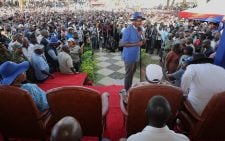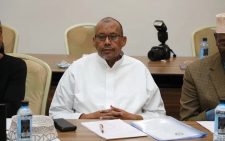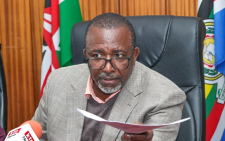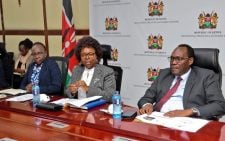IEBC commissioner candidate questions President’s neutrality
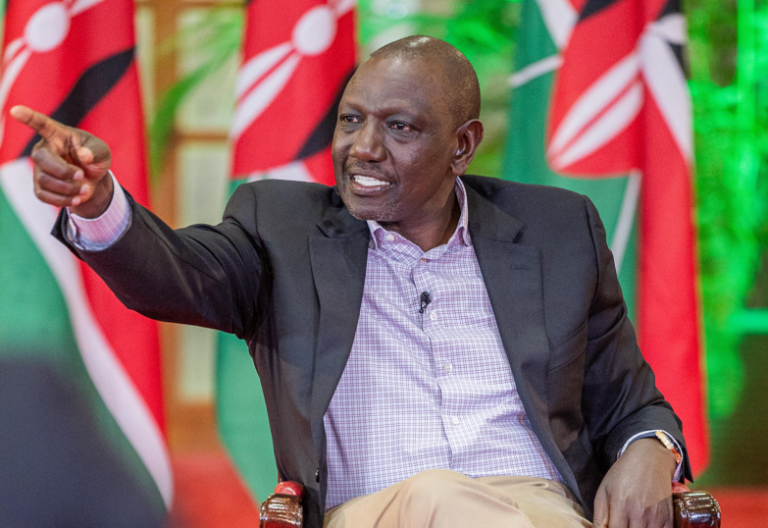
A candidate for electoral agency commissioner has expressed misgivings about President William Ruto having the final say on who will be selected.
Eliud Wanjau doubted whether the President would be neutral in appointing members of the Independent Electoral and Boundaries Commission (IEBC) from the list that the selection panel will submit to him.
Ruto, he argued, is not legally bound to reveal the criteria he will use to pick individuals.
“At the end of the exercise, you [the selection panel) will be submitting two names for chairman and nine names for member …. Do you think under the principles of neutrality, that is a fair thing in terms of what the law says or it should be amended?” Wanjau asked.
Guided by law
This is “a situation whereby the President will pick XYZ and drop XYZ and is under no obligation under the law to make an explanation of why he dropped X and picked Y.”
In response, selection panel chairman Nelson Makanda told Wanjau that the team is guided by the law in searching for new members of the IEBC.
But Makanda avoided commenting on how the President could ensure fairness in appointing commissioners.
“I may not be able to speak to the fairness of it – whether it is or not – but the laws in Kenya are made through the National Assembly and public participation,” he said.
“It is the laws that Kenyans have ventilated on and so we follow the will of the people of Kenya.”
Wanjau is a former Kenya Revenue Authority deputy commissioner. He was hard-pressed to explain why the IEBC gazetted his name as an independent candidate for Kirinyaga County senator while he was the running mate for governor candidate Wangui Ngirici in the 2022 elections.
He blamed the IEBC for the mix-up on its register, adding that he reached out to the agency for the error to be rectified.
Listing mistake
His listing as candidate for senator, he said, was a “mistake … and they removed it because at the end of the day, it was impossible [to be candidate for both seats],” he said.
“It is a mutually exclusive situation for one to vie as deputy governor when you are also vying as a senator.”
If appointed commissioner, Wanjau said, he would ensure that the candidate register is cleaned up before being published to save prospective candidates from falling into the same predicament.
“If somebody intends to vie for a certain position and then withdraws [and] they don’t remove him from the roll, then I think it is wrong,” he said.
“I would ensure that the register of candidates is inspected and audited before it is published so that what goes to the government printer for gazettement is actually bona fide contestants.
“Otherwise, it is mistakes such as those ones that will make us have dead voters in the roll.”
To address strained relationships among members of the IEBC, Wanjau proposed that the agency be delinked from the names of its incumbent chairmen.
“I would actually attribute the stormy relations between the chairman and the commissioners to personality issues,” he said.
“One of the things that we may need to look at as a commission is to de-personify [it]. We have [had] a situation whereby the commission is synonymous with the name [of its late former chairman Wafula] Chebukati, for example.”
‘Auditable’ system
Commissioners, he said, need to work together and consult “before arriving at decisions that affect the operations of the commission and effectively affecting the entire country”.
Rejecting claims by the IEBC that its server and portal are one and the same, with the portal allegedly displaying the contents of the server, Wanjau said the election system must be auditable as the server is prone to manipulation.
“The server is the back-end infrastructure of the system. If you have fake polling stations, you can interfere with what the server is transmitting to the portal,” he said.
“You can actually instruct the portal to show only what you intend to do. Having an electoral system that can be audited [means] people should have access to the system to ascertain who logged in when, what time and what he did.”
Boundary factors
Meanwhile, reappearing before the selection panel, Erastus Edung, previously interviewed for the position of IEBC chairman, explained how the agency could factor in population, geographical features and community interests when redrawing electoral boundaries, one of the pending assignments for the incoming commissioners.
“Those are the parameters that have been specified in the Constitution,” he said.
Before reviewing boundaries, he said, commissioners must first conduct public hearings in the affected constituencies and wards, and publish and submit a report to Parliament.
The IEBC, he added, must also anticipate petitions from interested parties and factor in the 30 days for filing them and six months for courts to resolve them per the Constitution.

